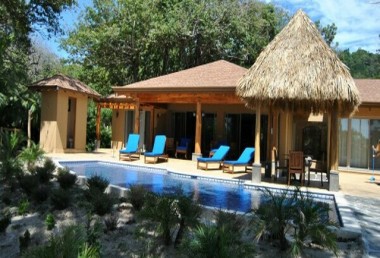Languages Spoken in Mal Pais and Santa Teresa
In Costa Rica, the cardinal language generally spoken is Spanish. The principal newspapers, magazines,
news castings and most of the major authorized affairs are conveyed in Spanish. As the area has been
lately becoming a holiday hotspot, the visitors have cast quite an influence on the usage of English
language. The international visitors, workers of rental agencies, airport employees, concierge of
hotels, and staff of Bed and Breakfast, villas and rental houses are found to be bilingual, that is they
have mastered the fluency English and Spanish. Such bilingualism will be usually seen in the
areas which are populated by foreigners and vacationers in popular vacation destinations such Mal Pais,
Montezuma or Santa Teresa
There are numerous Costa Rican expressions that may be confusing to the foreigners
– For example, the word Ma’e (pronounced as my) is used as a kindred to the English word “dude”, but it
actually means ‘idiot’. This expression is commonly used affectionately among ticos friends and
families. (Tico, Ticos in plural, is a word used for natives of Costa Rica)
– Another well-known expression, Pura vida, when translated in English means ‘Pure Life’ (pronounced as
Poora Veeda’). This is an expression which is widespreadly used by the natives of Costa Rica.
It can be used for several purposes. For example, it is most often used in contexts such as
expressions of gaiety, excitement, greetings, toasting, enthusiasm, approval, support and so on.
– Pulperia means a shop, rather a general store.
– Tuanis is akin to the English word ‘okay” and ‘cool’. It is derived from the English word
‘too much nice’.
In Costa Rica and other Latin American regions, a regnant version of slang language in Costa Rica is
mostly used which is known as ‘pachuco’ or ‘pachuquismo’. It is acknowledged as anamiable way of
speaking, and is a predominant way of communicating between friends and families in most social
classes of Costa Rica.
 The word ‘vos’ (you or vos sos that means you are) and tu
The word ‘vos’ (you or vos sos that means you are) and tu
(also means you) are informal words used among the citizens of Costa Rica, Uruguay, Argentina
and many other Latin American countries. When being formal, the ticas make use of the word ‘Regalo mi’
which translate into ‘gift me’ instead of more informal, get me.
Limonense Creolé
Along with Costa Rican Spanish, in several areas, especially in Puerto Limon, a province
of Costa Rica on Caribbean sea side, a different English-based creole language. It is known
as Limónese Creole (it is also called as Limón Creole English and Mekatelyu). It has many
versions such as Colón Creole, Mískito Coastal Creole, Belizean Kriol language, and San Andrés and
Providencia Creole.
Following are the essential expressions that will help you get around the towns:
Yes: Si
No: No
Please: Por favor
Thank you: Gracias
You’re welcome: De Nada
Excuse me: Disculpe
How do I get there? : ¿Cómo voy hasta ahí?
How much is it?: ¿Cuánto cuesta?
Where is the restroom? : ¿Dónde están los baños?
Where is the closest gas station?: ¿Donde está la gasolinera más
próxima?
I’m
lost: Me
he perdido.
Can you show me on the map: ¿Me lo puede señalar en el mapa?
Canapé Catering
Location: 200 Meters North of La Hacienda Super Market, Santa Teresa, Costa Rica Cuisines:
International Dining Options: Catering Services, Event Planner. Contact: Telephone:
506-89-82-27-22 Website: http://www.canapecateringcr.com/ Description: Canapé
Catering is a supreme full catering service and event planner run by two expert chefs, Devin
Rodriguez & Joy Starrin, in the tropical town of Santa […]



